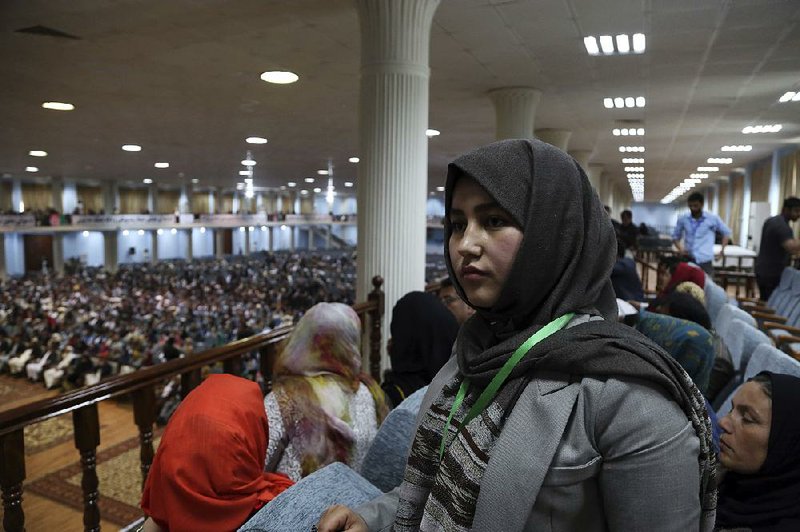KABUL, Afghanistan -- An Afghan grand council on Thursday agreed on several recommendations for peace talks with the Taliban, after four days of meetings in Kabul meant to hammer out a common strategy for future negotiations.
President Ashraf Ghani had convened the council of more than 3,200 participants, known as Loya Jirga, earlier in the week. Though the gathering is consultative and its recommendations are not binding for Ghani, it underscored his government's effort to project a unified stance.
However, a number of prominent Afghans, including Ghani's partner in the unity government, Chief Executive Abdullah Abdullah, boycotted the council, which ends today.
The U.S. has in recent months stepped up efforts to resolve Afghanistan's war, now in its 18th year, and has been pressing for direct talks between the Taliban and Kabul. The insurgents refuse to talk to the government, considering it a U.S. puppet, though they have held several rounds of talks with U.S. peace envoy Zalmay Khalilzad.
The participants in the Loya Jirga -- which included politicians, tribal elders, many prominent figures and others -- were divided into dozens of committees and discussed several issues, including a cease-fire and women's rights in keeping with the tenets of Islam.
The Taliban have so far refused to accept any cease-fire until the roughly 17,000 NATO troops -- 14,000 of whom are American -- withdraw from Afghanistan.
The council overwhelmingly backed talks between Kabul and the Taliban and also called for the U.N. to remove its global terrorist designation for the Taliban, a long-standing demand of the insurgents.
But after holding an opening speech Monday, Ghani gave the chairmanship of the council to Abdul Rasool Sayyaf, a former warlord with past links to Osama bin Laden and the militants who took control of Kabul after the collapse of the communist government in the early 1990s. He is known for adhering to a strict interpretation of Islam, and refusing to meet with women.
Still, the council expressed its support for women's rights and said the country must not backtrack from the gains that women have made since the U.S.-led invasion in 2001 ousted the Taliban regime, which had harbored al-Qaida.
Meanwhile, Khalilzad embarked on another round of talks with the Taliban on Wednesday in Qatar, where the insurgents maintain a political office. Those talks are narrowly focused on U.S. troop withdrawal and Taliban guarantees that Afghanistan will not be used to stage global terrorist attacks.
Earlier in the week, Khalilzad visited Pakistan and was also in Moscow, where a trilateral meeting that also included China issued a statement supporting U.S. efforts to find an end to the protracted Afghan war.
Khalilzad on Wednesday also met Indonesia's Foreign Minister Retno Marudi, who had met a day earlier with the Taliban chief negotiator, Mullah Abdul Ghani Baradar.
Information for this article was contributed by Kathy Gannon of The Associated Press.
A Section on 05/03/2019
